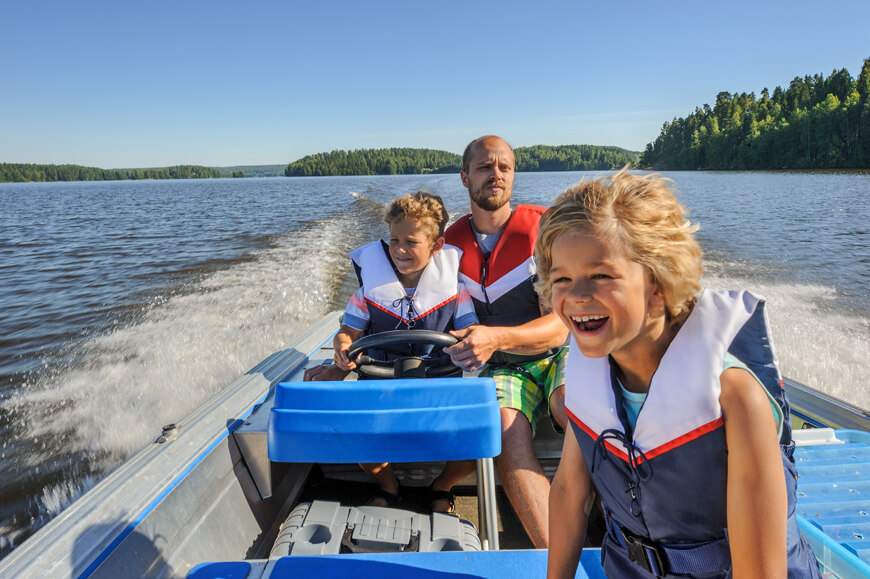
It is never too late to brush up on boating safety regulations, skills and drills.
Pleasure craft licenses are required in Canada
In Canada, it's the law for everyone operating a power driven boat to have a Pleasure Craft Operator Card. To obtain a PCOC, a person must have proof of competency that shows they understand the rules of the water and how to safely operate a boat. There are various ways to obtain the card but we recommend taking a full power and sail squadron course. Usually the classes can be taken over a weekend and they can provide a great level of boat safety operation and emergency safety skills.
Licensing requirements for minors operating a boat
In Canada, a person under the age of 16 has restrictions regarding a motor driven boat. It is never too early to teach your children about safe boating and following the rules. Once they are of legal age to operate a pleasure craft, they will be well versed on safety.
- Under 12 years old, the maximum power of motors is a 10 hp, unless accompanied and directly supervised by a person 16 years or older.
- At least 12 years old but under 16 years of age maximum, power of motor is a 40 hp, unless accompanied and directly supervised by a person 16 years old or older.
- Under 16 years old – prohibited from operating a personal watercraft i.e. Jet ski, WaveRunner, Sea-doo, Kawasaki or Yamaha PWC’s.
The top 10 safety tips for boating in Canada
Ensure your boat has all the required safety gear and adequate fuel for the trip. Be sure the weather is suitable for your vessel's capabilities.
- Pre-departure – ensure the boat is sea-worthy and you've done a safety check on the boat and engine. Ensure you have extra plugs, spark plugs and the oil and gas are full.
- Safety kit – review your safety kit for the type of boat you own. Boats that are longer in length and can carry more people have different safety kit requirements.
- Life jackets – check all life jackets to ensure they're in good condition and there are an adequate number of certified personal flotation devices for the size and weight of the people on board.
- Do a pre-departure safety lesson – it's always a good idea to refresh everyone’s memory on good boat safety. And it's the responsibility of the captain to ensure everyone on board knows the safety rules and how to follow orders in case of an emergency.
- Check the weather forecast before departing.
- Don’t drink and operate a boat.
- Make it a fun activity to practice man overboard safety and rescue.
- Have your communication gear, GPS and charts in good working order before departing the dock.
- Leave a trip/rescue plan with a responsible person to let them know your expected course and when you will be returning.
- Emergency communication – in case of an emergency on the water, have a strategy to contact other boaters, the Coast Guard or Marine and Air Search and Rescue in your area.
Everyone learns the “rules of the road” before driving a motor vehicle, and we encourage everyone to do the same before taking the helm. Learning safe boating operation and emergency preparedness can save your life and the lives or your boating companions. Another safety related item that many people overlook is having the proper insurance for the type of boat and use. Make sure you're covered for damage and liability. Accidents are preventable, but they do occur. Enjoy the summer boating months, and keep safe on the beautiful lakes and waterways of Canada.
To find out about the best boat insurance for your type of watercraft, find a Pacific Marine broker and ask for a PMU boat insurance policy.
Resources
Pleasure Craft Licence applications
Canadian Power and Sail Squadrons
Canadian Safe Boating Council
Office of Boating Safety, Transport Canada
Canadian Coast Guard